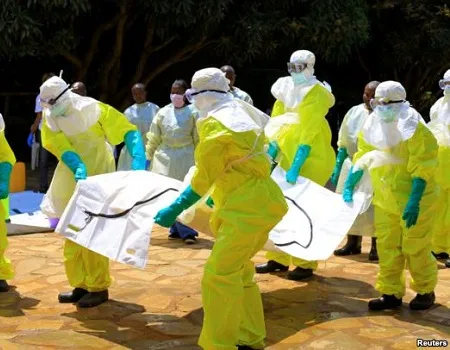
The Nigeria Centre for Disease Control and Prevention (NCDC) has assured Nigerians that there are currently no confirmed cases of Ebola Virus Disease (EVD) in the country, despite the fresh outbreak in Uganda.
In a statement released by NCDC Director-General, Dr. Jide Idris, the agency emphasized that it is actively monitoring the situation through the National Emerging Viral Hemorrhagic Diseases (EVHD) Technical Working Group. It has also implemented several measures to strengthen Nigeria’s preparedness, including updating the EVD emergency contingency plan, intensifying surveillance at entry points, and optimizing diagnostic capacity at designated laboratories nationwide.
“In addition, all Lassa fever testing laboratories can be activated to scale up testing if the need arises,” the statement read.
Ebola, a severe and often fatal disease with a mortality rate of 25–90%, is caused by five known virus strains—Bundibugyo, Zaire, Reston, Tai Forest, and Sudan (responsible for the Uganda outbreak). Transmission occurs through direct contact with infected body fluids, contaminated objects, or infected animals such as bats and primates.
To prevent an outbreak in Nigeria, the NCDC urged the public to observe strict hygiene measures, avoid physical contact with symptomatic individuals, and refrain from consuming poorly prepared bush meat, particularly bats and primates.
Additionally, Nigerians with recent travel history to affected countries experiencing symptoms such as fever, muscle pain, sore throat, vomiting, or unexplained bleeding are advised to immediately call the NCDC emergency line at 6232 or contact their state health authorities.
While the World Health Organization (WHO) has not imposed travel restrictions, the NCDC advises Nigerians to avoid non-essential travel to countries with confirmed Ebola cases.
The agency reassured the public that it is working closely with national and international health bodies, enhancing border surveillance, strengthening laboratory capabilities, and keeping healthcare workers on high alert to respond swiftly to any potential outbreak.








